Medical Marijuana as an Alternative Treatment for Epilepsy
Are you curious about the potential benefits of medical marijuana for epilepsy? In this article, we’ll explore the truth behind medical marijuana and seizures and how it may provide relief.
We’ll examine the efficacy of medical marijuana, particularly its key components THC and CBD, in managing epilepsy symptoms.
If you’re in Utah, we’ll also address whether medical marijuana and seizures are an option in your state.
Get ready to uncover answers to common questions like “Does weed help with seizures?” and gain a better understanding of how you can manage your symptoms.
Keep scrolling to find out the relationship between medical marijuana and epilepsy and how you may benefit from its usage.
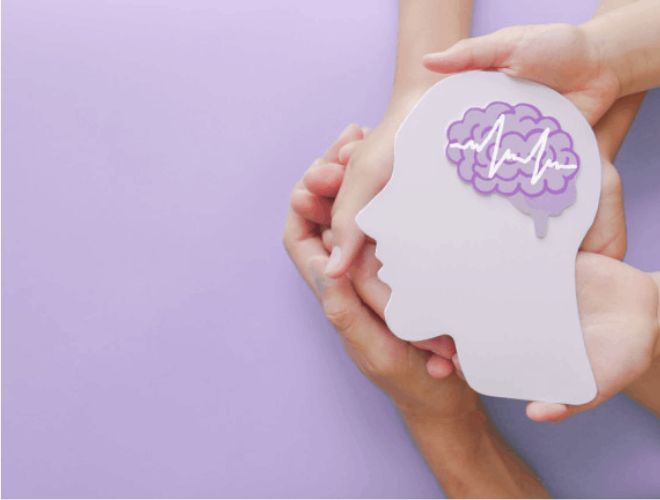
Medical Marijuana for Epilepsy: How Cannabis Can Help You
Before we dive into the must-know facts about medical marijuana and epilepsy, let’s take a moment to understand what this condition is and its primary symptoms.
In short, epilepsy is a neurological disorder characterized by recurring seizures, which are sudden bursts of abnormal electrical activity in the brain.
These seizures can manifest in various ways, such as convulsions, loss of consciousness, or unusual behaviors.
Now, let’s talk about medical marijuana and epilepsy treatment.
Many patients have reported positive effects when using medical marijuana to manage their condition. Different weed strains, such as Indicas, Sativas, and hybrids, contain varying levels of THC and CBD, two of the most well-known compounds in cannabis.
What is better when it comes to medical marijuana for epilepsy: Sativas, Indicas, or hybrids? What about CBD and THC content, does it matter in relation to medical marijuana and epilepsy?
When it comes to epilepsy, there is no one-size-fits-all answer as to which strain or cannabinoid profile is best.
Some individuals may find that high CBD strains are more effective in reducing their seizures, while others may benefit from strains with higher levels of THC.
Additionally, some patients may prefer strains with a balanced THC: CBD ratio.
It’s important to work closely with a healthcare professional experienced in medical marijuana to determine the most suitable strain and cannabinoid profile for your specific needs.
Now, regarding the use of medical cannabis for epilepsy in Utah, the state has enacted laws allowing individuals with qualifying conditions, including epilepsy, to access medical marijuana.
This means that patients with epilepsy in Utah may have the opportunity to explore medical cannabis as a potential treatment option.
In the next sections, we’ll further explore the efficacy of medical marijuana in managing epilepsy symptoms, the potential benefits of THC and CBD, and address common questions like “Does weed help with seizures?”. Read on.
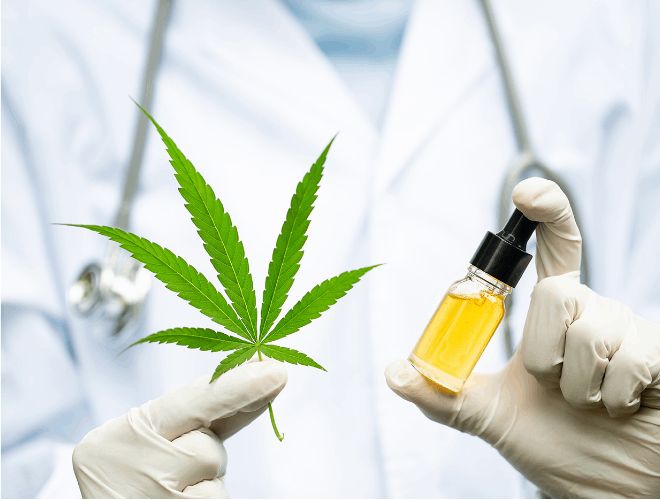
Medical Marijuana and Epilepsy: What the Research Says
Research has shown that medical marijuana may be beneficial for managing seizures in epilepsy.
The cannabinoids in cannabis, like THC and CBD, interact with the body’s endocannabinoid system, which helps regulate various functions, including seizures.
For reference, THC is known for its psychoactive effects, while CBD doesn’t make you high.
Both THC and CBD interact with receptors in the body, potentially reducing the frequency and severity of seizures.
Studies have found that THC can significantly decrease seizure frequency in people with treatment-resistant epilepsy. A combination of THC and CBD has also shown promising results in reducing seizures.
CBD has gained attention for its potential in treating a severe type of epilepsy called Dravet syndrome.
Clinical trials have demonstrated that CBD can lead to a significant reduction in convulsive seizures compared to a placebo. The FDA has even approved a CBD-based medication called Epidiolex for certain epilepsy types, further supporting its effectiveness.
Remember, everyone’s response to THC and CBD can be different, and the ideal THC:CBD ratio and dosage for seizure control may vary.

Can I Use Medical Marijuana for Epilepsy in Utah?
Yes, marijuana can help with seizures in some cases.
Research has shown the potential benefits of medical marijuana, specifically cannabinoids like THC and CBD, in managing seizures associated with epilepsy.
However, accessing medical marijuana for epilepsy typically requires a medical cannabis card or certification.
If you’re seeking assistance and guidance on obtaining a medical marijuana card in Utah, we’re here to help.
Our coalition comprises local physicians with a collective experience of over 300 years in medicine.
We understand the importance of personalized care and can connect you with a Qualified Medical Provider who can evaluate your eligibility and guide you through the process.
Don’t hesitate and book your appointment with us today and take a step towards exploring medical marijuana as a potential treatment option for your epilepsy.
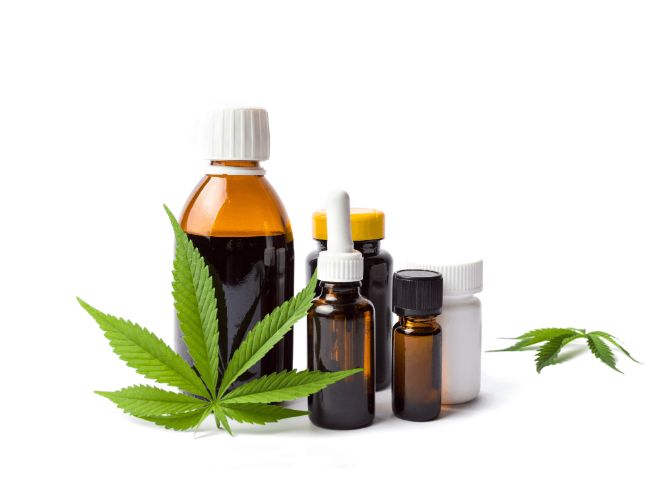
Medical Marijuana for Epilepsy and Other Conditions: Do You Qualify?
In Utah, if you’re considering using medical cannabis for epilepsy, obtaining a medical marijuana card is necessary.
Having a qualifying medical condition such as chronic pain or epilepsy makes you eligible for cannabis treatment. Here are some of the conditions that qualify for a medical marijuana card in Utah:
- Epilepsy (including seizures)
- Chronic pain (the most common qualifier)
- Cancer
- HIV
- Alzheimer’s disease
- Crohn’s disease
- ALS (Amyotrophic lateral sclerosis)
- Cachexia (wasting syndrome)
- Nausea
- Multiple sclerosis or MS
- PTSD (Post-traumatic stress disorder)
- Ulcerative colitis
- Terminal illness
- Autism
- Any condition resulting in the patient receiving hospice care
- Any rare disease or condition affecting less than 200,000 individuals in the US
If you have any of these conditions, consult with a Qualified Medical Provider to determine your eligibility and explore the possibility of obtaining a medical marijuana card.
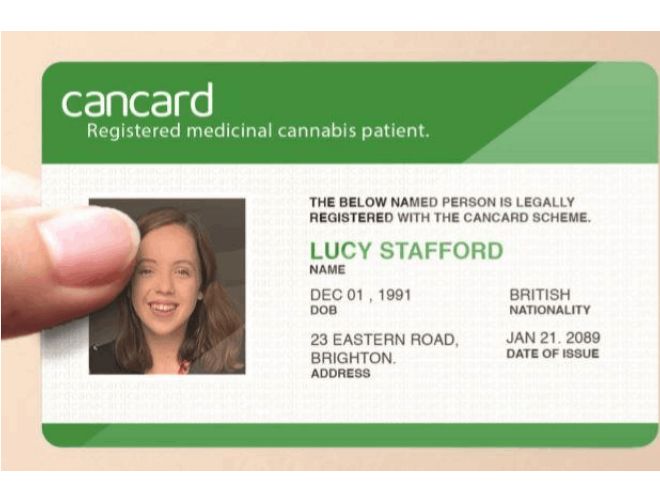
What is a Medical Cannabis Card?
If you’re considering using THC for epilepsy, it’s important to understand the concept of a medical cannabis card and why you need one.
A medical cannabis card, also known as a “medical marijuana card”, is an identification card that grants you legal access to obtain and use THC for epilepsy and other qualifying conditions.
If you’re seeking assistance in obtaining a medical cannabis card in Utah or have questions about using THC for epilepsy, we’re here to help. Schedule your appointment today and start using medical marijuana for epilepsy.
The Top Medical Benefits of Cannabis to Consider
Besides THC and epilepsy treatment, medical cannabis offers a range of other benefits across various health conditions. Take a look at the top ten medical benefits of cannabis:
- Pain management: Cannabis has shown effectiveness in alleviating acute and chronic pain associated with conditions such as fibromyalgia and arthritis.
- Muscle spasm relief: It can help reduce muscle spasms and stiffness, offering relief to individuals with conditions like Parkinson’s disease.
- Nausea and vomiting control: Cannabis can help manage nausea and vomiting caused by chemotherapy or eating disorders like bulimia.
- Improved sleep: Many patients report improved sleep quality and reduced insomnia symptoms when using medical cannabis.
- Anxiety and stress reduction: Certain weed strains may have calming effects, helping to alleviate anxiety disorders.
- Appetite stimulation: Cannabis has been used to increase appetite in individuals with conditions such as cancer or HIV/AIDS who experience appetite loss.
- Anti-inflammatory effects: Cannabinoids in weed have shown anti-inflammatory properties, potentially benefiting conditions like inflammatory bowel disease.
- Neuroprotective properties: Cannabinoids may have neuroprotective effects, potentially helpful for conditions like traumatic brain injury.
- Anti-seizure activity: Besides epilepsy, medical cannabis has shown promise in reducing symptoms associated with other seizure disorders.
- Mental health support: Cannabis may play a role in managing symptoms of mental health conditions like depression and post-traumatic stress disorder (PTSD).
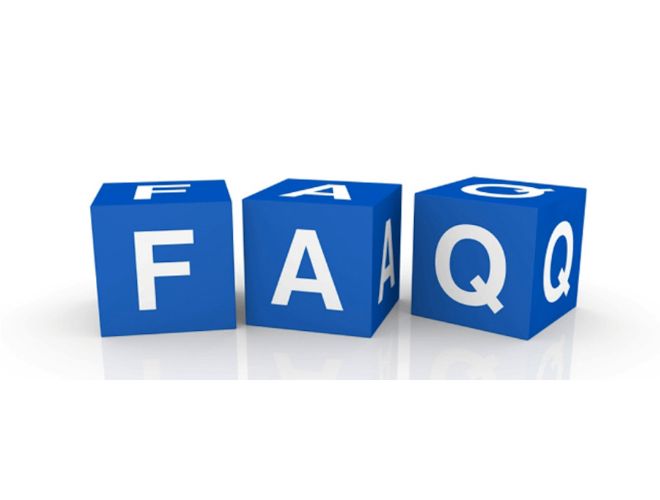
FAQ
Can marijuana help with seizures?
Yes, marijuana can help with seizures.
As mentioned, THC, one of the main cannabinoids in weed, has been found to have anticonvulsant properties, meaning it can reduce the frequency and severity of your seizures.
Can marijuana help with seizures and how does it happen? Yes, and it occurs when THC interacts with your body’s endocannabinoid system (ECS for short), which plays a vital role in regulating brain activity and seizures.
By modulating the activity of neurons, THC can help prevent or minimize seizure activity, providing potential relief for individuals with epilepsy.
I’m interested in THC and epilepsy treatment: What are my steps?
If you have epilepsy and you’re in Utah, there are steps you can take to become eligible for medical cannabis treatment.
First, consult with a medical professional experienced in medical marijuana treatments. They can evaluate your condition and determine if medical cannabis may be a suitable option for you.
If deemed appropriate, they can help guide you through the process of obtaining a medical marijuana card.
This involves meeting the qualifying criteria, submitting an application, and receiving approval from the state, which grants you legal access to medical cannabis for managing your epilepsy symptoms.

Book an Appointment Today
In conclusion, medical marijuana is an impressive potential treatment option for individuals with epilepsy.
The cannabinoids found in weed, such as THC and CBD, have demonstrated anticonvulsant properties and may help reduce seizure activity.
If you are seeking compassionate and knowledgeable care, whether you’re dealing with epilepsy, chronic pain, inflammation, depression, or any other condition, our team of highly Qualified Medical Providers is here to help.
Book your appointment with us today and take the first step toward exploring the potential benefits of medical marijuana for epilepsy. We are committed to providing you with the best care and guidance on your journey to improved health and quality of life.
Your health is a top priority – schedule your appointment today and begin using medical marijuana for epilepsy.
